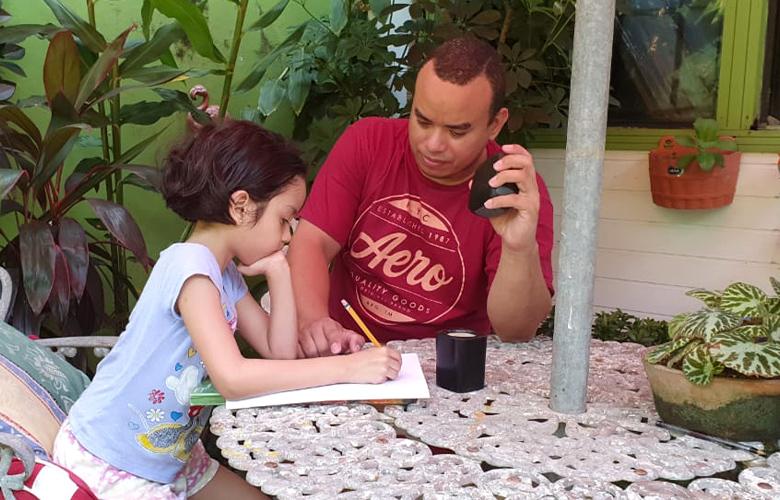
International Literacy Day coincides this year with the start of my children’s now-virtual school year, and I am struck more than ever by the importance of the work EDC does to provide access to quality learning opportunities for vulnerable children and families worldwide. My own children are fortunate to have a strong foundation in literacy, but even so, their remote schooling poses challenges and causes a great deal of social-emotional uncertainty. As COVID-19’s cascade of school closures and social and economic shutdowns reaches our global partners, I worry that the progress the learners we support have made in foundational skills will be undermined by a lack of learning resources, inequitable distribution of infrastructure for distance learning, and sharply increased stress at home. EDC’s historic commitment to serving the most marginalized and prioritizing those with the most at stake in education requires us to think creatively and respond rapidly to ensure that these vulnerable learners do not stumble on their path to literacy.
EDC’s literacy programs are transformational. They provide practical skills as well as the social-emotional development, critical thinking, and problem-solving that are so essential to building positive life paths, strong families, and safe, healthy communities. By fostering inclusion and helping learners develop skills that can break the cycle of poverty, EDC’s literacy work helps lay a foundation for a more peaceful and prosperous future. Now more than ever, continuity of those learning opportunities is critical.
For the COVID-19 response, we have harnessed our existing literacy resources with low-cost, high-reach technology to support continued learning for even the most marginalized children while schools are closed.
In the Democratic Republic of the Congo (DRC), we have repurposed existing interactive audio instruction (IAI) programs for radio broadcasts to out-of-school youth, thereby ensuring they can continue to access basic education programming. In Zambia, we have built on our existing literacy materials with the rapid development of a new audio story series with teaching tips to help families support young children’s literacy development while schools are closed. In Honduras, we are providing daily lessons and resources to families on a variety of platforms, including audio, video, and online.
In these and other countries, we are keeping literacy learning on track. As my own children tune into their virtual learning for the first time on September 8, I am hopeful that they are in good company.
| Rachel Christina leads EDC’s International Basic Education team, which designs and implements literacy and other basic education programming for children and youth in Africa, Asia, and Latin America. |


Add new comment